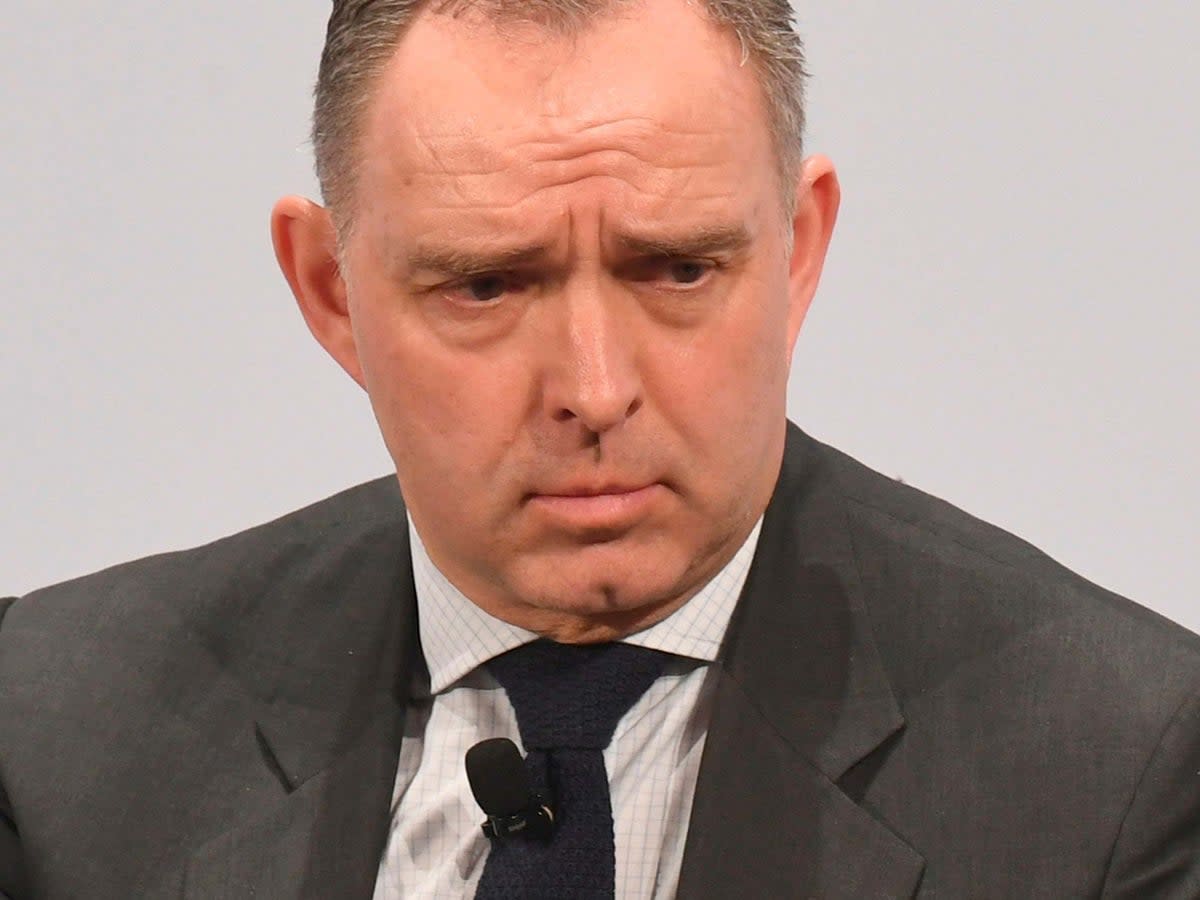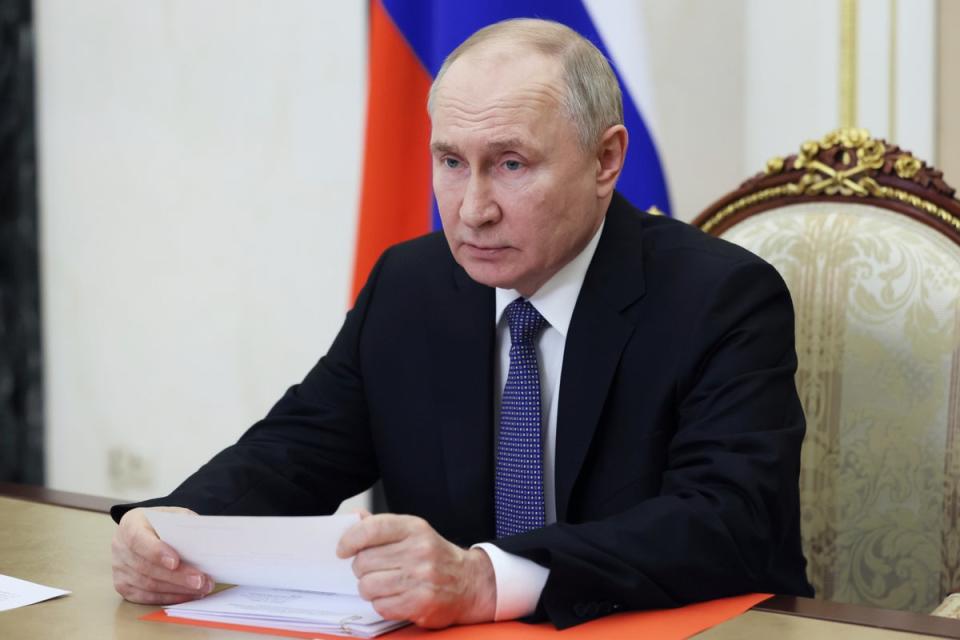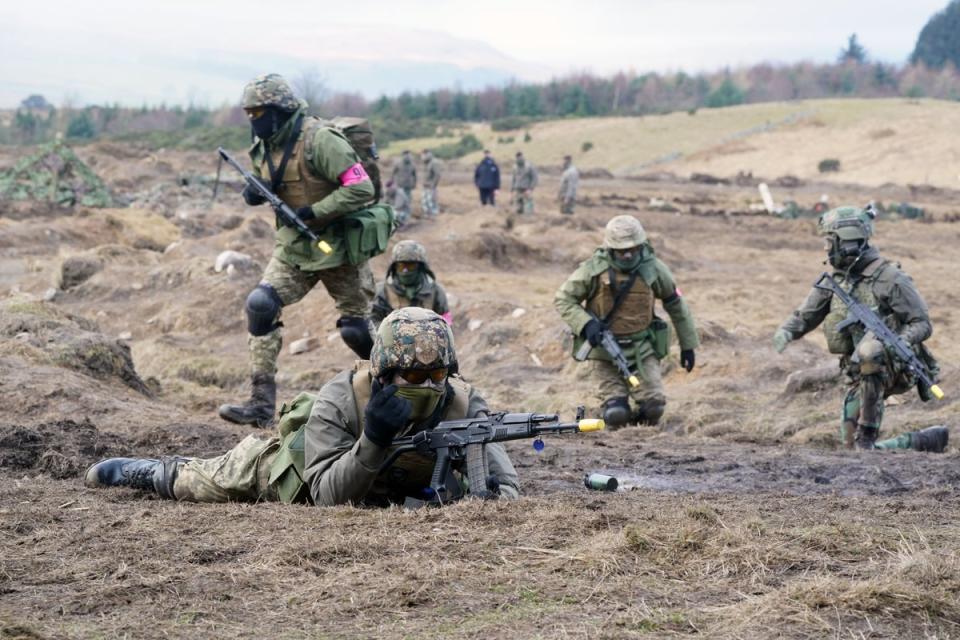UK needs wartime defence spending in face of most dangerous time since Cold War, ex-civil service chief warns

- Oops!Something went wrong.Please try again later.
Britain must ramp up its defence and aid spending and bolster its diplomatic and intelligence networks amid “the most dangerous period” since the Cold War, the UK’s former top civil servant has warned.
Writing in The Independent, former cabinet secretary Sir Mark Sedwill urged the government to nearly double Britain’s defence spending to reach 4 per cent of GDP and restore the international aid budget to 0.7 per cent of national income, slashed by Boris Johnson in 2021.
And warning of the threat should Vladimir Putin prevail in his war on Ukraine, he called for Kyiv’s allies “to “upgrade defence industrial capacity to wartime levels”, “run our own factories 24/7” and buy weaponry and munitions for Ukraine, whether or not Congress funds the US to do so.
The former national security adviser also suggested that European militaries should be “modernised and integrated” through the Nato military alliance, and called for the formation of a similar economic alliance “to respond collectively to crises or coercion”.
“As autocrats advance, delay is a luxury we cannot afford,” the crossbench peer wrote following the 75th anniversary of the founding of Nato – as he urged European governments to “tackle the fraying of the Western alliance”, and for Britain to “lead by example” in this effort.
Contrasting the “vigour” of US president John F Kennedy’s inaugural 1961 pledge to “pay any price, bear any burden, meet any hardship, support any friend, oppose any foe”, with “the weariness of his modern successors”, Lord Sedwill pointed to America’s “disorderly” retreat from post-9/11 wars, the “uncertain” response to previous Russian aggressions in Georgia and Ukraine, “creeping protectionism” against allies, and the dilution of Nato’s guarantee of collective defence.
In the face of “the most dangerous period since the end of the Cold War”, Lord Sedwill questioned whether – 75 years after its foundation – Nato can meet the test of rediscovering “Kennedy’s confidence, commitment and courage when he positively welcomed ‘the responsibility to defend freedom in its hour of maximum danger’”.
Urging Britain and European nations to increase their defence budgets, he wrote: “When Kennedy spoke, most Nato allies made considerable sacrifices to invest in collective security. [Donald] Trump puts it crudely, but, today, even the most Atlanticist Americans warn that their taxpayers cannot be expected to subsidise a European social model they do not enjoy themselves.”

But warning that “money alone isn’t enough”, Lord Sedwill suggested that European armed forces should be modernised and integrated through Nato across the five domains of sea, land, air, space and cyberspace.
“That means setting aside traditional boundaries between army, navy and air force, accepting that many prized traditional manned assets will become obsolete, and adopting at scale the model of the British-led Joint Expeditionary Force (JEF) with several Nordic and Baltic allies.”
But “this goes beyond defence”, he continued, writing: “Three years ago, I met G7 leaders in Cornwall and argued that we should reverse the drift to protectionism between allies, and match Nato’s military alliance with an economic one to respond collectively to crises or coercion, and develop resilient critical supply chains.
“This is particularly relevant as we also wrestle with Xi Jinping’s increasingly assertive China.”

He called on the UK and other European leaders to make these commitments at Nato’s Washington summit in July, and for the next Nato secretary general to be mandated to deliver them.
It follows multiple interventions in recent months by senior politicians and military figures demanding that Britain must do more to prepare itself for the possibility of war.
In January, defence secretary Grant Shapps warned that Britain was facing a “pre-war world”, and claimed the “peace dividend” that allowed successive governments to ease spending on defence had come to an end.
Days later, the head of the British army insisted that the UK should be prepared to form a “citizen army” of tens of thousands of people in the event of war.
Cautioning that Britain’s current forces and reserves would not be large enough to defend the country if there was a war, General Sir Patrick Sanders warned it was now essential for Britain to lay the foundations for “national mobilisation”.
This was echoed the following month by MPs on the cross-party Commons defence committee, who found in an inquiry that the UK’s military was not sufficiently prepared to fight an all-out war – despite such readiness serving as a vital deterrent to Britain’s adversaries.

